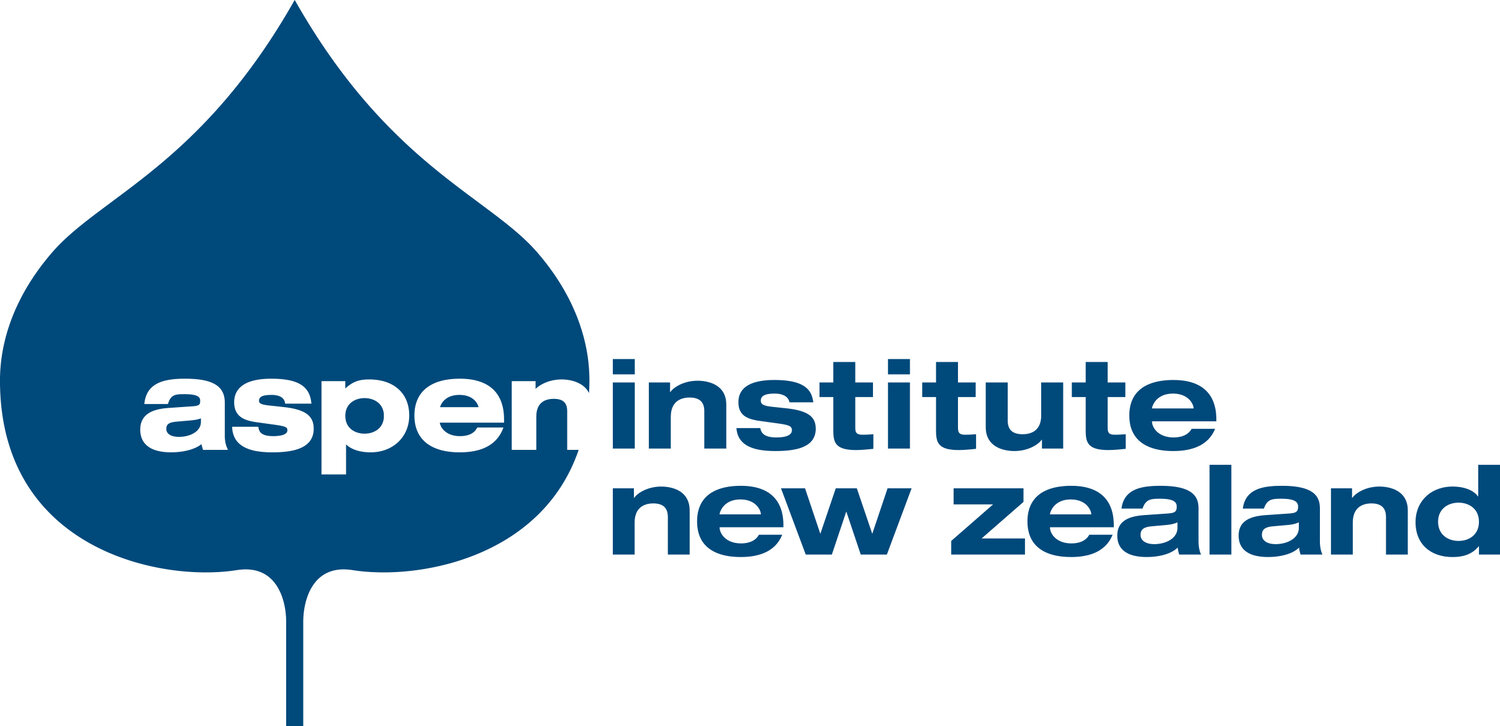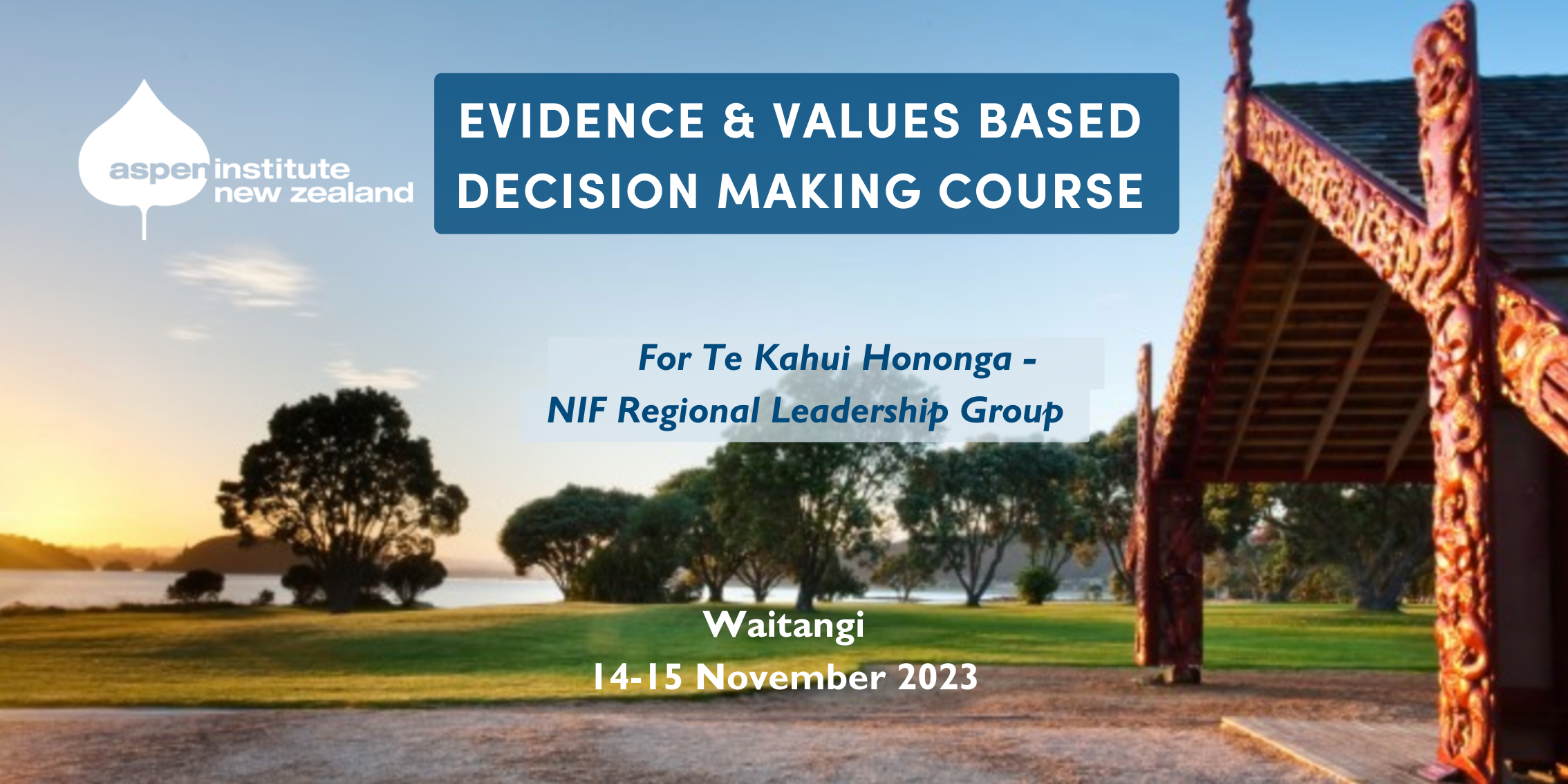Evidence and Values Based Decision Making Course (EVBDM)
Waitangi Treaty Grounds | 14-15 November 2023
Te Kahui Hononga / NIF Regional Leadership Group
Our newest programme, EVBDM, is a dynamic, immersive course designed to enhance our decision-making skills using real world evidence and your own values.
Led by Neil Jacobstein, Director of the Aspen Institute New Zealand and Chair AI & Robotics Singularity University, this short course engages 20-30 participants in 2.5-hour modules over two days. It will empower you with a simple and practical framework to augment your organisation's decision making as well as sharpen your own business and personal decision skills.
If you and your organisation want to improve the quality of decision outcomes, contact us below. Bookings now open for 2024.
Course Overview
In an organisational landscape marked by the complexities of climate change, public health crises, and changing global dynamics, EVBDM serves as a strategic compass. It empowers both individuals and organisations to navigate these challenges with a comprehensive approach, ensuring that decisions align not only with immediate needs but also with long-term strategic goals.
The course delves into the heart of decision making challenges and emphasises the need for a systematic approach to augment organisational decision making, as well as sharpening business and personal decision skills.
EVBDM can bring transformative benefits to an organisation by enhancing organisational capabilities, increasing trust amongst teams, and mitigating the risk of costly decision errors.
“Since being involved with Aspen NZ, I’ve seen how non-partisan dialogue across generations and disciplines opens shared insights into pressing issues. I believe the Aspen NZ approach will help MP’s develop their ability to draw insights from contrasting points of view as well as enabling networking and personal growth.”
Sir Bill English, Director, Aspen Institute NZ
Key Questions Explored
What is evidence and how can we use it systematically?
Examine the fundamental role of evidence in decision making, emphasising the need for publicly disclosed and validated information.
How can we ensure that our own values are utilised powerfully?
Explore the implications of personal values, addressing the intricacies of decision making trade-offs and understanding the relative strengths of values.
How can we use an evidence and values framework to improve decision outcomes?
Delve into the critical process of combining evidence and values within a systematic framework, addressing decision errors, risks, time frames, and other constraints.
EVBDM Framework
The course introduces the Evidence and Values Decision Framework, a simple yet powerful checklist comprising nine essential steps that provide a pathway to enhance decision methods and outcomes. Delivered as three modules over one and a half days, each module offers condensed summaries and optional readings to deepen participants' understanding of critical issues.
If your organisation wants to improve the quality of decision outcomes, contact us below. Group bookings now open for 2024.
Course Lead
Neil Jacobstein, Chair AI & Robotics Singularity University
Neil is a founding faculty member and past President of Singularity. Neil has extensive AI system building and technical R&D consulting experience in industry and government. He was a MediaX Distinguished Visiting Scholar at Stanford University 2007-2022, where his work focused on augmented decision systems. Neil was appointed by the US National Academy of Sciences, Engineering, and Medicine to the Earth and Life Studies Committee, and worked on the Academy's 2021 Strategic Plan. He is a Henry Crown Fellow at the Aspen Institute US, and a founding Board Director of the Aspen Institute in New Zealand. Neil was also a founding Editorial Board member and editor of the American Association for the Advancement of Science’s Science Robotics journal.
The Aspen Institute New Zealand - Empowering Future Generations for a Resilient Democracy
At the Aspen Institute New Zealand, our mission is clear: we strive to improve outcomes on crucial intergenerational issues and foster a resilient and thriving democracy for the future generations of New Zealand. As the sole Aspen partner in the Southern Hemisphere, we bring immense value through the unique Aspen method and network.
Our approach is built on the Aspen core principles of open dialogue, respectful disagreement, diversity of thought, and broad freedom of expression. We offer a safe and non-partisan platform for conversations, using the Aspen moderated process to foster critical thinking. Our goal is to enhance understanding, generate solutions that benefit different generations, manage risks, and motivate action through the public and private forums that we convene.


